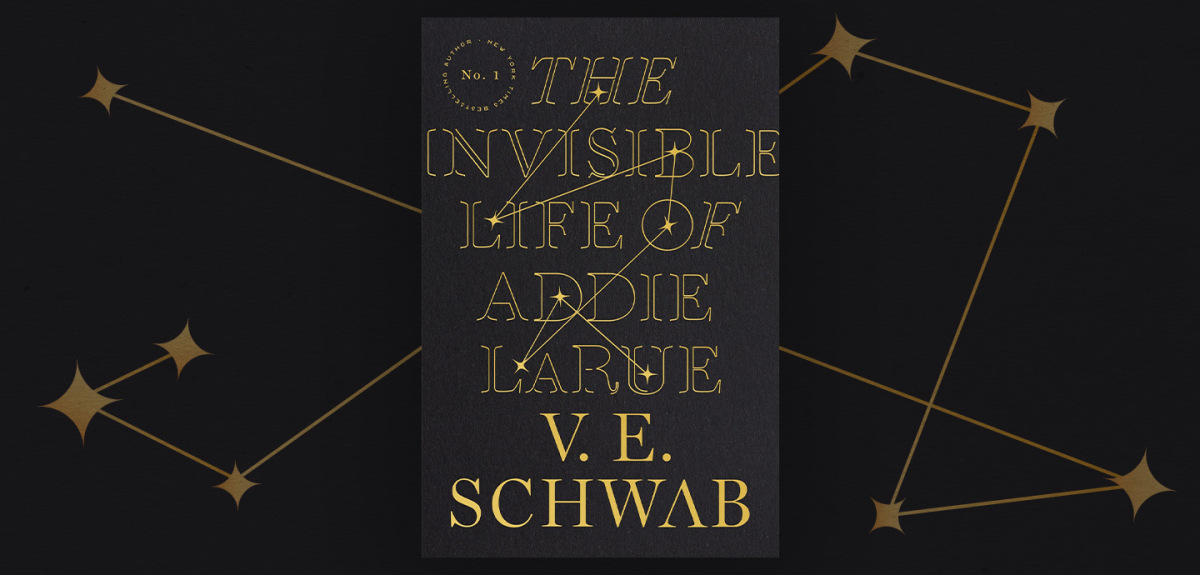[ad_1]
I’m tempted to say the modern idea of genre is a joke, except that it’s not funny. A sincerely curious, skilled, and committed writer can basically write whatever she wants, genre be damned. Yet certain genres are still elevated and others dismissed; the New York Times “By the Book” feature still regularly asks writers “Which genres do you avoid?”
But there is no particular art to literary fiction that doesn’t exist in fiction of other genres, and V. E. Schwab’s new book The Invisible Life of Addie LaRue isn’t just an amazing book for its genre; it’s an amazing book, full stop. I have no doubt that if she wanted to, V. E. Schwab could write a 784-page coming-of-age doorstop about a young man whose in-the-moment decision to steal a valuable painting shapes the rest of his life, or an epic yet intimate exploration of the intertwined dysfunctions of a troubled Midwestern clan, or a novel of irrepressible grief and longing narrated by more than 150 voices, most of them dead. But those books have already been written. How lucky we are that, instead, Schwab decided to write this one.
The Invisible Life of Addie LaRue doesn’t just traffic in beautiful sentences, though it has those a-plenty. A typically lush but not intrusive bit of description: “The garden, once overgrown, has been swallowed up by the encroaching woods, and the wild has won its war against the hut, dragged it down, saplings jutting up among the bones.” It doesn’t privilege emotion over plot, or interior complexity over exterior action. It just tells a gorgeous, immersive story, gripping the reader with a tale of disappointment and triumph, damage and healing, fear and wonder, and above all, memory.
At its core, the plot engine of Schwab’s book is unmistakably Faustian. Born in a small French village in 1691, Adeline LaRue makes a bargain with “the gods that answer after dark” to escape an unwanted marriage. The dark, entrancing figure who negotiates the bargain—taking the good-looking, masculine form of one of Adeline’s own drawings, and later, given the name Luc by Addie herself—blesses and curses her with a kind of immortality: she will live as she wants, freely, until she tires of life, only no one she meets will remember her.
For hundreds of years she lives under these conditions, finding her limits, testing them. Neither cold nor hunger can kill her. The world’s impact on her and her impact on the world are both evanescent. The fact that no one remembers her makes it easier to steal, to slip away, to live on the fringes, though it also makes any kind of lasting connection or stability impossible. Luc returns at irregular intervals to torment her, but she resists the urge to give up and surrender her soul even when times grow desperate. Then, in 2014 New York City, she meets a young man named Henry in a bookstore, and he remembers her.
Henry is warm-hearted and kind, prone to depression, and just as drawn to Addie as she is to him. Once he appears, chapters from his point of view alternate with Addie’s, but as the title indicates, this is not really his story, but hers. Henry and Addie aren’t equal partners, exactly, but they’re partners in a meaningful, resonant way.
In lesser hands the story might become predictable. Girl falls in love with the only boy who seems to understand her; the obstacles between them must be, by the end, either overcome or acknowledged as insurmountable. Yet in Schwab’s talented, inventive hands, there turns out to be a third way. You can relax into your enjoyment of the story and trust that she knows what she’s doing, because she does. Once it’s finally revealed why Henry remembers Addie when no one else does, the reason makes sense; Schwab is an author who understands the importance of both subverting and satisfying reader expectations.
Keen-eyed readers will notice that I haven’t mentioned what genre the book supposedly fits into, and I don’t plan to. If you already know Schwab for her previous work, reading this stand-alone will feel both familiar and new; if this is the first novel of hers you’ve read, no context is required. Schwab is an inclusive, ambitious, and exacting writer, and she doesn’t let either her characters or her readers off the hook. You’re in good hands.
So forget genre. The back cover copy from the publisher describes the book as “genre-defying,” but what is there to defy? This book doesn’t blend genres, or even transcend genre. Schwab simply renders the idea of genre irrelevant—because, in the end, it is. What The Invisible Life of Addie LaRue does—what any truly great book does—is transport and transform us. And in the end, that’s the only thing that’s important to remember.

FICTION
The Invisible Life of Addie LaRue
By V. E. Schwab
Tor Books
Published October 6th, 2020
[ad_2]
Source link
